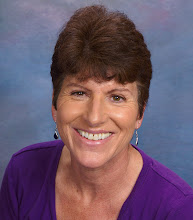As a fiction editor, I encounter confusion from writers about how to treat numbers, the time of day, and references to printed materials. I base my edits/suggestions on a combination of Chicago Manual of Style and what I see and experience from traditional publishers. As a submitting novelist, you might as well get your manuscript into the best shape you can before sending it to anyone.
Here are some general guidelines:
Numbers one through one hundred are spelled out as words. Larger numbers, especially dollar amounts, can be written as numerals, but it’s not a mandate. Be consistent within a paragraph.
~~~~~~~~~~~~~


Here are some general guidelines:
Numbers one through one hundred are spelled out as words. Larger numbers, especially dollar amounts, can be written as numerals, but it’s not a mandate. Be consistent within a paragraph.
- Lucy had seen the movie twelve times and spent exactly $132.45 in the process.
- At age ninety-nine, Stella always let out her cats when she left the house. Still, she hoped to make it to a hundred and two, just to show up her sister.
- Jackson looked at his watch: 1:45 p.m. He’d gotten up that morning at four and left the house by five.
- She left home in 1982 but didn’t mature until she took up meditation in the 90s.
- Granny loaded her Ruger .22 and took aim.
- “I’ll get the Colt forty-five,” Gramps shouted.
- Janie used her copy of Rolling Stone to fan away the smoke.
- In a moment of clarity, she grabbed a pen and wrote out a list: get a job, lose five pounds, call my mother.
~~~~~~~~~~~~~

L.J. Sellers is an award-winning journalist and editor and is the author of the Detective Jackson mysteries, The Sex Club and Secrets to Die For. Her new novel, Thrilled to Death, will be released in August. She also loves to edit fiction and works with authors to keep her rates affordable. Contact her at:


Thanks, especially, for pointing out years, e.g, 1930s not 1930's.
ReplyDeleteI have a person asking another "What's your 20?" If calibres are written out in dialog, should police radio codes also be written out?
This is a great g-to list of things easily forgotten!
ReplyDeleteAh, thanks. I'll try to remember the 90s - not sure why I wanted to use a comma, but your explanation makes it easy to know why I shouldn't. Thanks.
ReplyDeleteEven when the rules are standard and accepted by most, some publishers will request something different. Your advice to have that discussion with your editor is right on. L. J. And writers should have it early in the game, well before the final edit.
ReplyDeleteOne of the rules I always applied was that you use numbers for units of measure. I worked as a technical editor and some of the things I read would have been confusing to the extreme if you wrote out the numbers.
ReplyDeleteExcellent advice, L.J. Thanks!
ReplyDeleteHelen
Straight From Hel
Numbers are tough. I know the basics, but beyond that I get confused and must rely on a manual.
ReplyDeleteMorgan Mandel
http://morganmandel.blogspot.com
http://facebook.com/morgan.mandel
I wanted to point out that these guidelines for numbers apply to fiction. Measurements and various other numeral uses in magazine articles and nonfiction typically call for APA style, which is very specific and different from fiction.
ReplyDeleteSo glad to have the reminder of how to handle numbers. That has always been something that hangs me up and I have to dig out the reference book. Wish I could just remember it all.
ReplyDeleteThis is a most helpful post. I am never quite sure how to treat numbers, and these rules are easy to remember.
ReplyDeleteWhat about age? Is it five-year-old, or five year-old or five-year old?
I've never got a straight answer to that.
This is a most helpful post. I am never quite sure how to treat numbers, and these rules are easy to remember.
ReplyDeleteWhat about age? Is it five-year-old, or five year-old or five-year old?
I've never got a straight answer to that.
Useful stuff. Thanks for sharing, L.J. :)
ReplyDelete